A lecture at the Faculty of Medicine to raise awareness of heart diseases and methods of prevention within the celebration of World Heart Day
Within the framework of the celebration of the Faculty of Medicine and Hospitals at Ain Shams University on World Heart Day, the Faculty of Medicine at the university organized a lecture to raise awareness of heart diseases and ways to prevent them, under the auspices of Prof. Dr. Mahmoud El-Meteini, President of the University, Prof. Dr. Ghada Farouk, Acting Vice President for Community Service and Environmental Development, and Prof. Dr. Osama Mansour, acting Dean of the Faculty of Medicine, in the presence and supervision of Prof. Dr. Hala Swaid, Vice Dean for Community Service and Environmental Development.
The activities of the lecture aim to educate the staff of the Faculty of Medicine and the university and its affiliated Facultys about heart disease, its symptoms and how to prevent it. Dr. Adel Shabana, Prof. Dr. Khaled dirhams professors, Department of the Heart of the Faculty, Prof. Dr. Wael Safwat, Consultant of Internal Medicine and Tobacco Therapy, and President of the International Committee for the Treatment of Tobacco Addiction.
In her speech, Prof. Dr. Hala Suwaid, Vice Dean of the Faculty, pointed out that the World Health Organization celebrates the World Heart Day on September 29 of each year and raises awareness against risks that endanger human life, as cardiovascular diseases are the cause of most deaths from no communicable diseases.
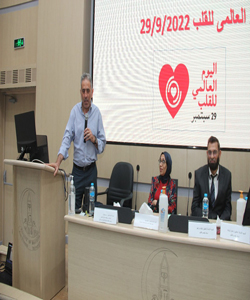 |
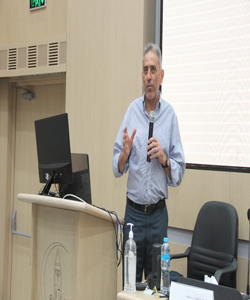 |
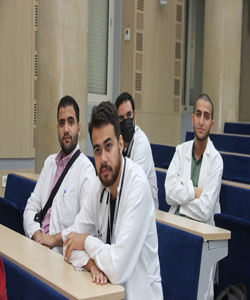 |
||
She added that the university was lit up in red to celebrate this day.
Prof. Dr. Wael Safwat, consultant of internal medicine and smoking treatment and head of the International Committee for the Treatment of Tobacco Addiction, confirmed in his lecture during the events that smoking is the first enemy of the heart, calling on the audience to help all those who know to quit this habit to maintain the health of their hearts, noting that smoking increases the incidence of arterial blockages Which increases the trend of cardiac catheterization operations.
Prof. Dr. Wael Safwat explained that the problem of smoking is a behavioral habit that improves the mood and therefore many smokers are unable to quit, so the patient needs both psychological and organic treatment, pointing out that there are medicines and drugs that help to quit smoking, but the will of smokers is the most important part to get rid of this habit, we deny that alternatives to cigarettes are less harmful.
Prof. Dr. Adel Shabana, Professor in the Department of Cardiology, explained how the heart muscle and the arteries that transport food to it work, and how fats are deposited in these arteries, which causes their blockages and can lead to clots. Heart disease is the world's number one killer disease.
He reviewed the risk factors that lead to atherosclerosis, which are divided into factors that a person can change such as smoking, high blood pressure, cholesterol and weight gain (obesity), uncontrolled diabetes, and factors that cannot be changed such as age, gender, the presence of a family history of the disease and the prevalence of some infections. Nationalities with heart disease.
Prof. Dr. Adel Shabana highlighted several suggestions and solutions to reduce risk factors such as exercising, eating a healthy diet, controlling blood sugar levels in his patients, reducing salt in food and taking blood pressure medications regularly if you suffer from it.
Prof. Dr. Khaled Drahem, Professor in the Department of Cardiology, explained how to transform a fast-paced lifestyle, which has a harmful and significant impact on human health, especially the heart, adding that the introduction of five tablespoons of olive oil or eating 30 grams of unsalted nuts to a person’s diet may reduce the risk of heart disease.
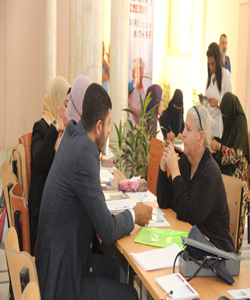 |
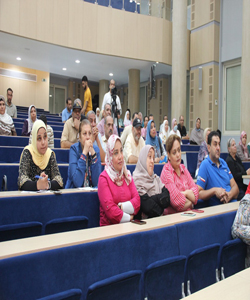 |
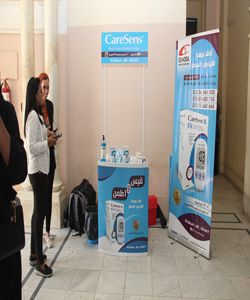 |
||
Prof. Dr. Khaled drahim called the attendance to abstain from unhealthy or trans fats such as (processed butter and hydrogenated oils) and increase healthy fats such as those in fish and stay away from meat, processed juices, creamer, cola, reduce pickles, eat foods rich in fiber and reduce red meat.
At the conclusion of the activities, the doctors examined volunteers from the audience with the latest devices to clarify the difference between smokers and non-smokers in terms of the health of their respiratory system.
It is noteworthy that on the sidelines of the activities, blood pressure and sugar were measured free of charge for those present, and lipid analysis will be conducted free of charge in hospitals.
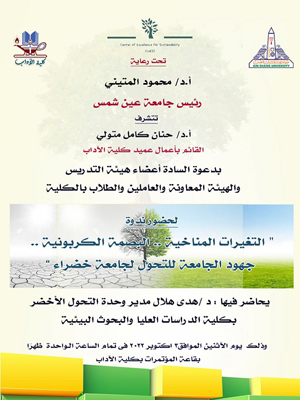


.svg)




